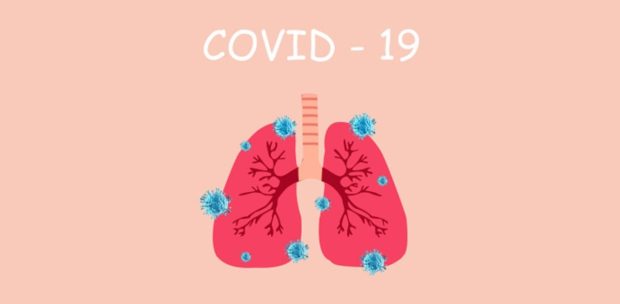
Scientists decode how lungs are damaged in severe Covid-19 using novel imaging technique
PTI, Aug 23, 2020, 6:08 PM IST

Credit: Getty Images
New Delhi: Using a novel technique that enables high-resolution imaging of damaged lung tissues, scientists have found the changes caused by severe Covid-19 in the structure of the organ’s blood vessels and air sacs, findings that may support the development of new treatment methods against the disease.
In the study, published in the journal eLife, the scientists developed a new X-ray technique which enables high resolution and three-dimensional imaging of lung tissues infected with the novel coronavirus SARS-CoV-2.
Using the new method, the researchers, including those from the University of Gottingen in Germany, observed significant changes in the blood vessels, inflammation, and a deposition of proteins and dead cells on the walls of the lungs’ tiny air sacs called alveoli.
They said these changes make gas exchange by the organ either difficult or impossible.
According to the scientists, the new imaging approach allows these changes to be visualised for the first time in larger tissue volumes, without cutting and staining, or damaging the tissue.
They said it is particularly well suited for tracing small blood vessels and their branches in three dimensions, localising cells of the immune systems present at inflammation sites, and measuring the thickness of the alveolar walls.
Due to the three-dimensional reconstruction of the lung tissues, the researchers said the data could also be used to simulate gas exchange in the organ.
Since X-rays penetrate deep into tissue, they said scientists can use the method to understand the relation between the microscopic tissue structure and the larger function of an organ.
“Based on this first proof-of-concept study, we propose multi-scale phase contrast X-ray tomography as a tool to unravel the pathophysiology of Covid-19,” the researchers wrote in the study.
The scientists believe the technique will support the development of treatment methods, and medicines to prevent or alleviate severe lung damage in Covid-19, or to promote recovery.
“It is only when we can clearly see and understand what is really going on, that we can develop targeted interventions and drugs,” said Danny Jonigk, a co-author of the study from Medical University Hannover in Germany.
Udayavani is now on Telegram. Click here to join our channel and stay updated with the latest news.
Top News

Related Articles More

ISRO to study how crops grow in space on PSLV-C60 mission

ISRO & ESA agree to cooperate on astronaut training, mission implementation

Snatcher lands in police net in Delhi, AI tech helps reveal identity

AI Meets Health: The Rise of Smart Fitness Solutions

Power Up by Powering Down: 10 Energy-Saving Tips for Every Home
MUST WATCH
Latest Additions

Police ‘killed’ Dalit man, alleges Rahul in Parbhani; CM Fadnavis says visit politically motivated

Karnataka govt approves 9 industrial projects worth Rs 9,823 Cr

Vinod Kambli admitted to hospital due to deterioration in health

Shami not fully fit yet, ruled out of remaining two Tests in Australia

Gurugram: 21 cybercriminals arrested for duping Rs 125 cr in fraud cases across country
Thanks for visiting Udayavani
You seem to have an Ad Blocker on.
To continue reading, please turn it off or whitelist Udayavani.




















